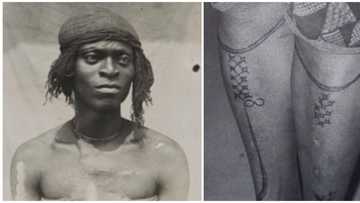15 different famous types of swords and names (with pictures)
The history of types of swords dates back to the Bronze Age that marked some of the earliest recorded forms of human civilizations. Despite the numerous variations in material used in making blades, the specific use, and efficiency of use, the fact remains that different types of swords were commonly used for slashing and thrusting. This is given to their somewhat longer blade compared to knife or daggers, and their handle known as hilt that consisted of a guard, grip, and pommel.
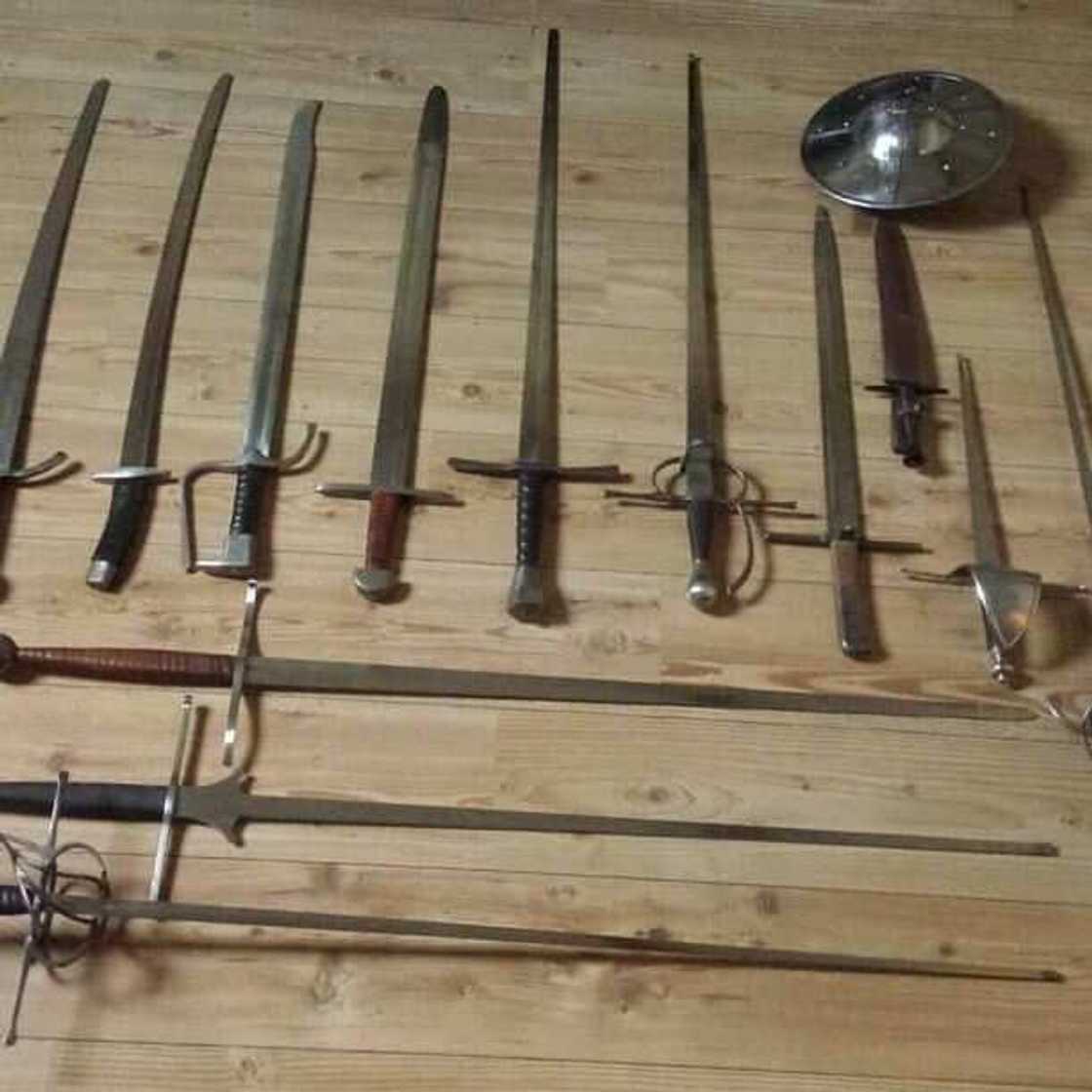
Source: Instagram
Did you know that the use of a sword over the past years is referred to as swordsmanship? Currently, most people relate blades usage to fencing. A look at the various pictures of swords from the archaeological collections and historical records, you will notice that the swords vary in either material, shape, length, among other factors. This can be summarized into three significant classification of swords.
1. Material used
As mentioned earlier, some of the earliest blades were created during the Bronze Age. I am referring to the period of 1600 BC. This was followed by the Iron Age where Iron became the dominant material in sword smith craftsmanship. However, after the 8th century, BC is when the iron swords became dominant but yet did not possess the crossguards (quillon). Then later came the European sword during the Middle Ages and the Late Roman army sword, Migration Period sword, High Middle Ages, among others.
2. Usage of sword designs
As an attacking and defensive weapon, blade designs much dependent on the particular opponent’s defensive tactics and on how the user would apply it during the warfare. You will find that for those communities that used horses in the battlefield, their blades were more to look like scimitar hence a curved blade with a broadened tip. On the other hand, most early civilizations that fought on ground preferred the rapier-like swords. These were quite thin and light sharp. Their primary usage was thrusting.
3. Speed and efficiency
When it comes to warfare, speed is the primary determinant of life and death. As the human understanding of the technological application of blades increased, much "rapier" like sword inventions were embraced. A combination of material, shape, and speed led to the development of some of the lethal blades in human history. A good example is the “Katana Sword” that is dubbed as the Samurai Sword.
Types of swords
From the Asian, Egyptian, rapiers, two-handed, long, and even short blades, I present you with a list of 15 names of swords and sword types with exclusive pictures of the types of blades. This will be effective in enlighting you on the history of blades and to act as a guide for those interested in buying or placing orders of the different blade selling websites and online shops across the world.
1. Katana
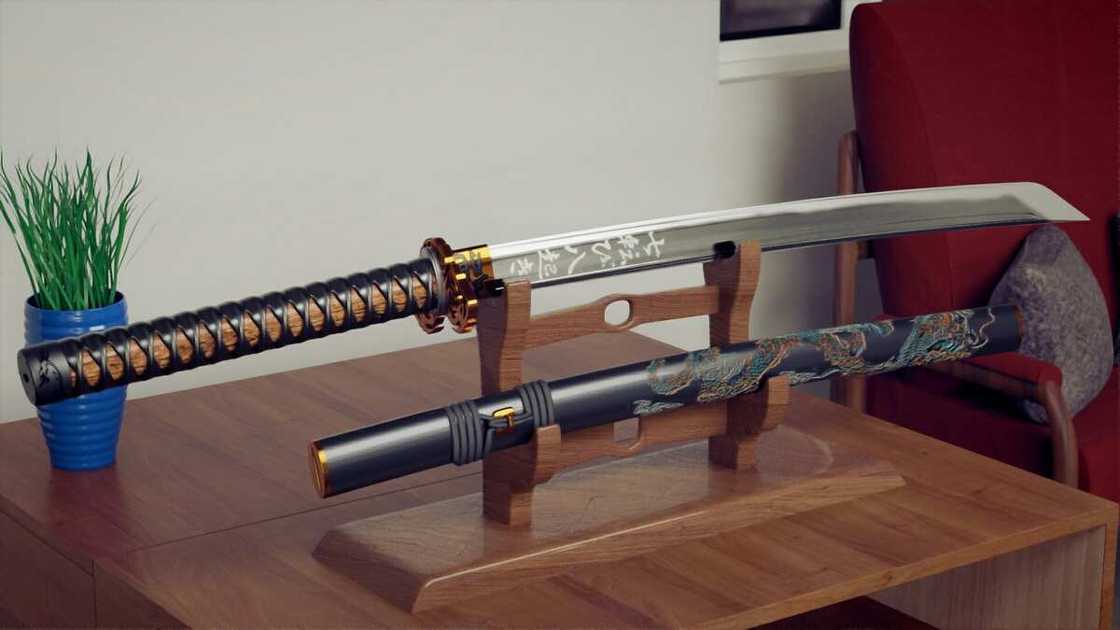
Source: UGC
As one of the most famous sword names in Japanese weapons, Katana has been related to most Samurai warriors in various stories, television shows, and films. A good example is the famous actor Tom Cruise, who uses Katana in the classic movie "The Last Samurai." Katana ranges from 24 to 30 inches in length. The sharp one bladed sword achieved universal application due to its widespread use in the 14th and 16th centuries (Feudal Period), only to be restricted to army usage in the Meiji Period. It possesses a circular/squared guard and two-handed grips.
2. B@stard
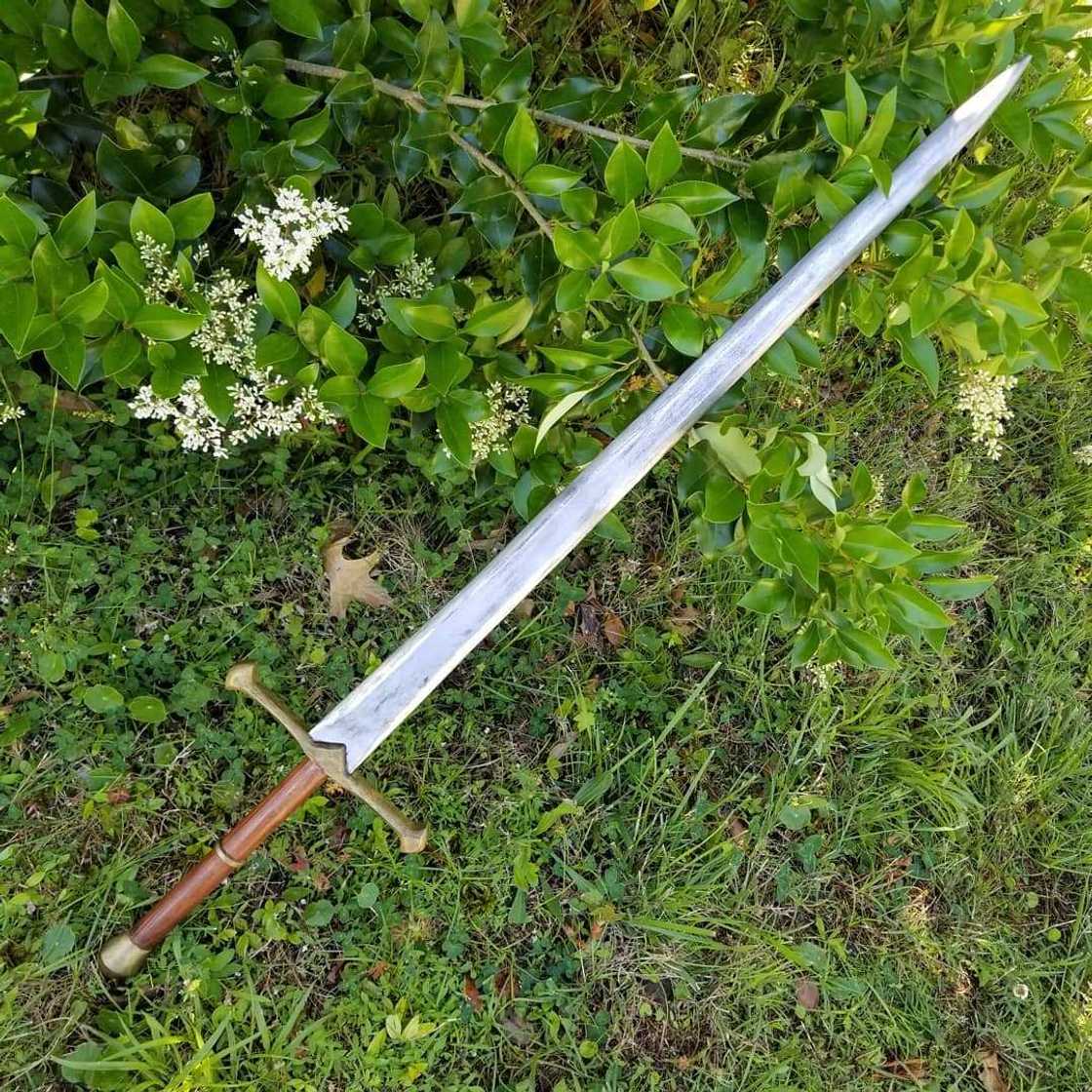
Source: Instagram
From the European history of legendary swords, B@stard is commonly referred to as “long-sword.” It possesses a cross-like hilt, used by two hands, has a long straight shape, and its blades are double-edged. Due to its length, it was also commonly referred to as a “hand –and-half-sword. “The blade was popular up to the 13th-17th centuries in Europe and is specifically related to the medieval period. Most B@stards range from 33” to 43”.
3. Claymore
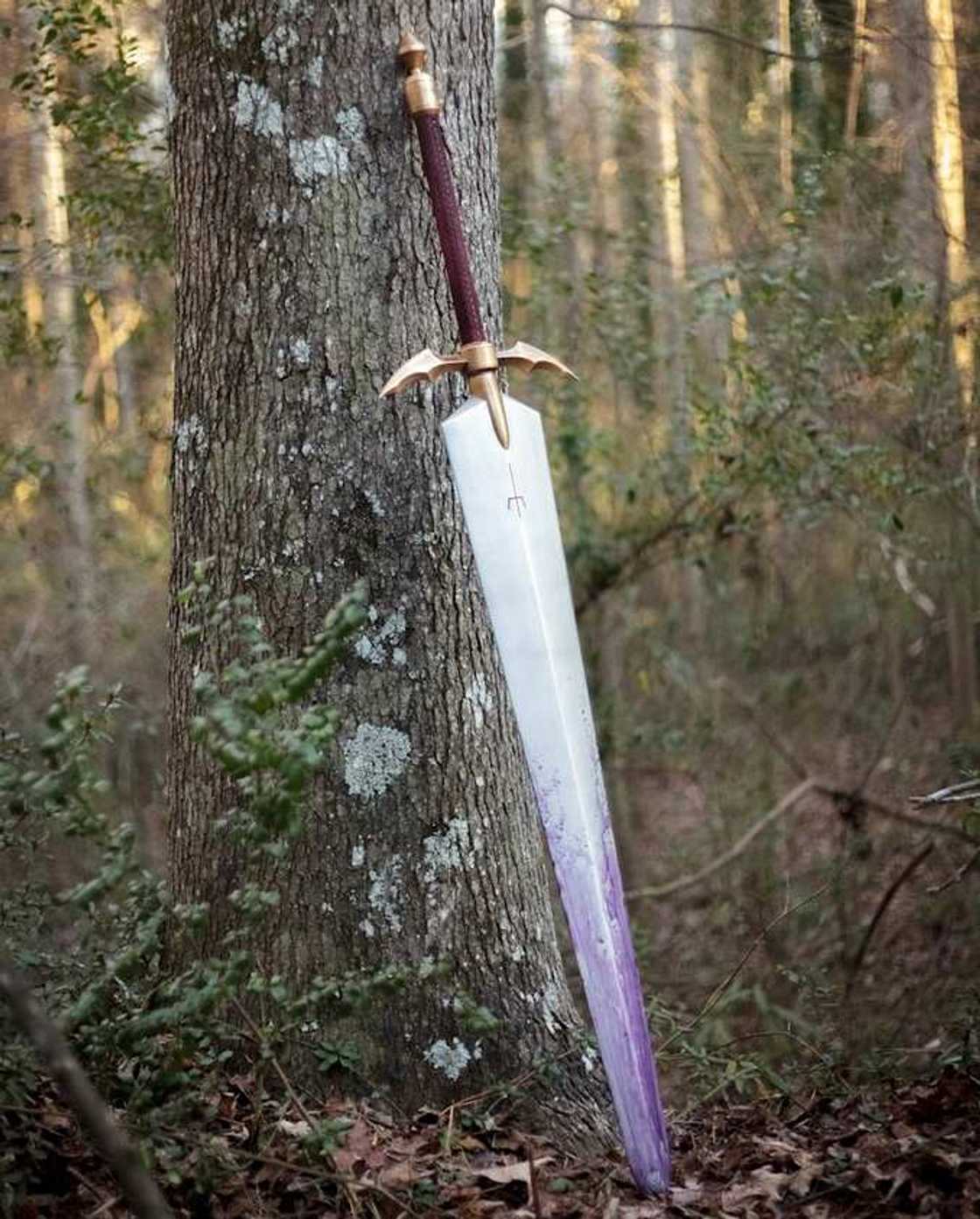
Source: UGC
Talk about the rich Gaelic/ Scottish sword names heritage; Claymore had high dominance in the 15th to 17th centuries Medieval Period. The "long-sword much inspired its crafting.' Some of its distinctive features included being a two-handed weapon and the cruciform hilt/ basket hilt. The second type of claymore had a V-shaped handle. With its usage being applied by foot army soldiers, Claymore usage is depicted in the Scottish movie “Braveheart” while the “Excalibur” sword used by King Arthur was a Claymore.
4. Zweihander
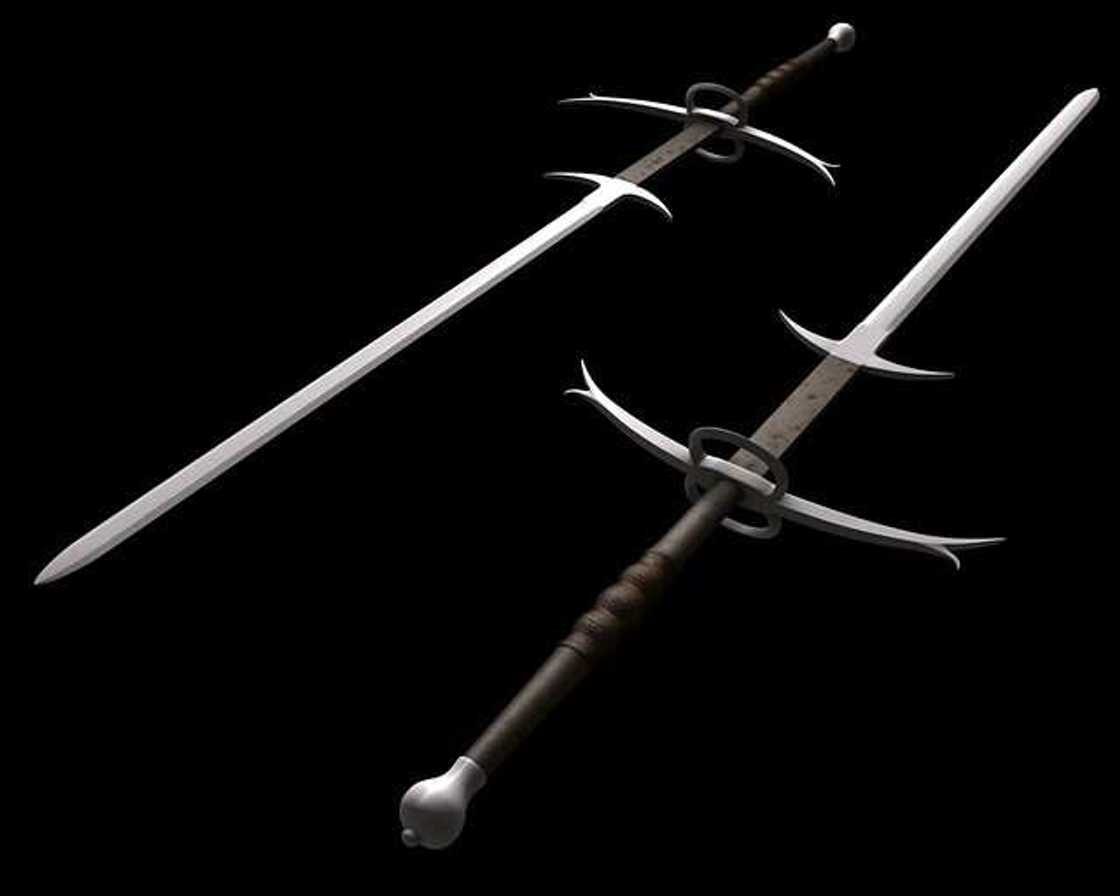
Source: UGC
With similar characteristics as the claymore long-sword, Zweihander seemed like a bigger version of the claymore. This means it required two hands and had to be carried on the back of a horse or a warrior. It was common among some of the feared German lone ranger warriors. Its use reduced to ceremonial purposes.
5. Gladius 28”
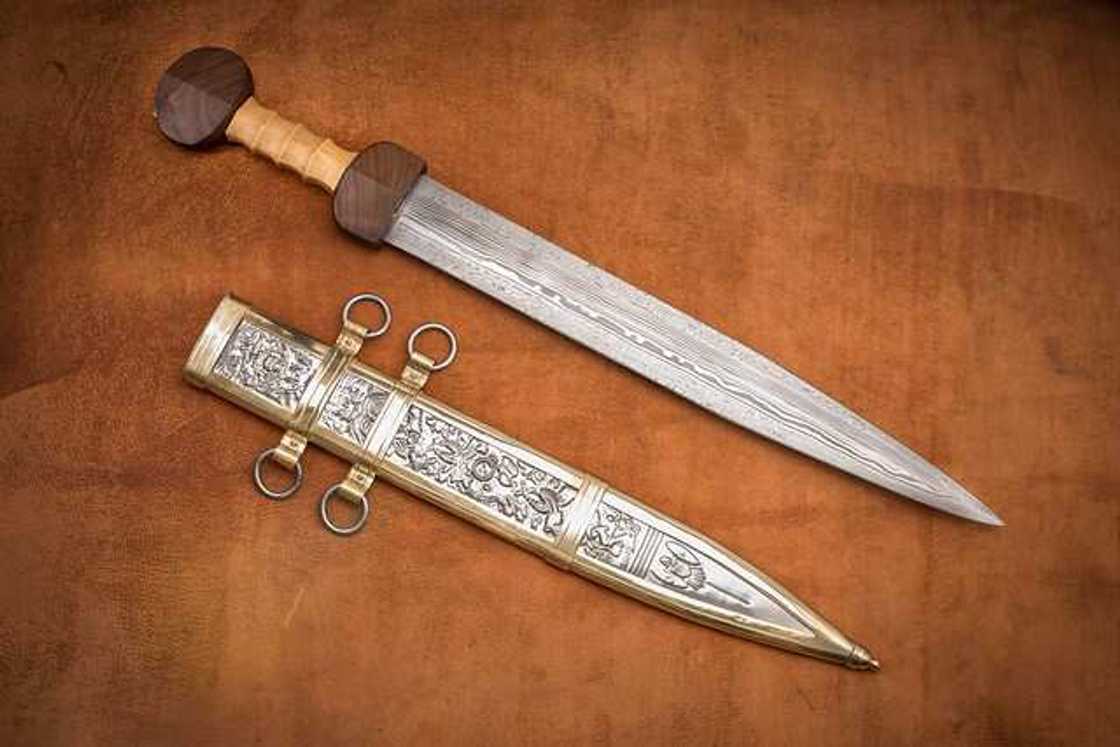
Source: UGC
In Ancient Rome Empire, the gladius was popular among the soldiers and gladiators types of sword. The foot soldiers applied them. During their Hispania conquest, the Rome soldiers used the gladius/Hispanic blade. Gladius was used alongside a shield. It was flexible in achieving cuts, chops, and thrusts. It featured a double-edged blade and a wooden handle. Pompeii was the famous gladius as it was the shortest and flexible while Mainz was the longest gladius.
6. Viking
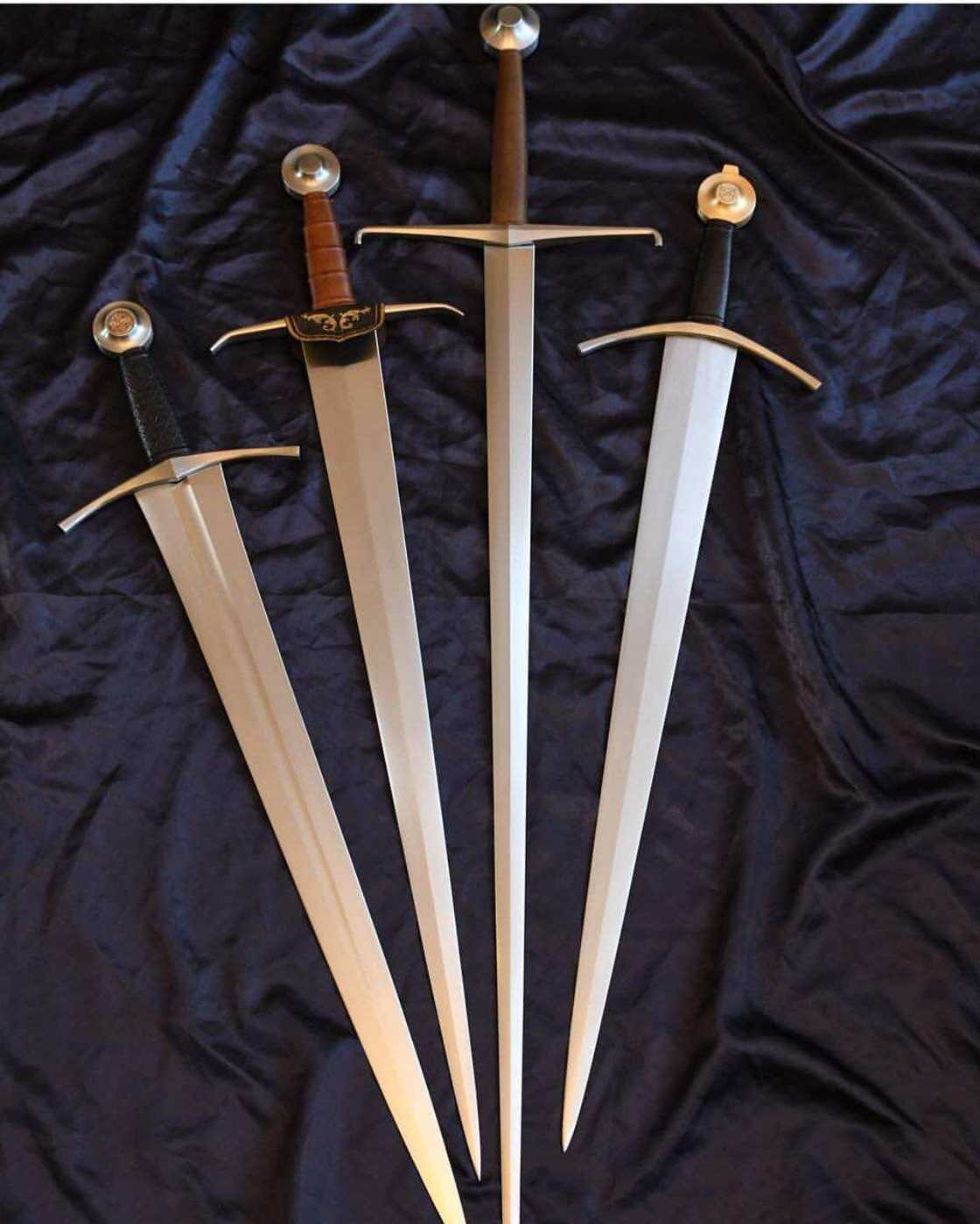
Source: Instagram
Also commonly known as the Carolingian sword, it dominated West and North Europe. The Vikings group Scandinavian majorly used it. Its inspiration came from the Roman Gladius blades. It features sharp double edges and pointed tip effective for slashing and also thrusting. From the Early Middle Ages, its usage lived up to the 12th century only to be blended to some of the first used knightly blades.
7. Rapier
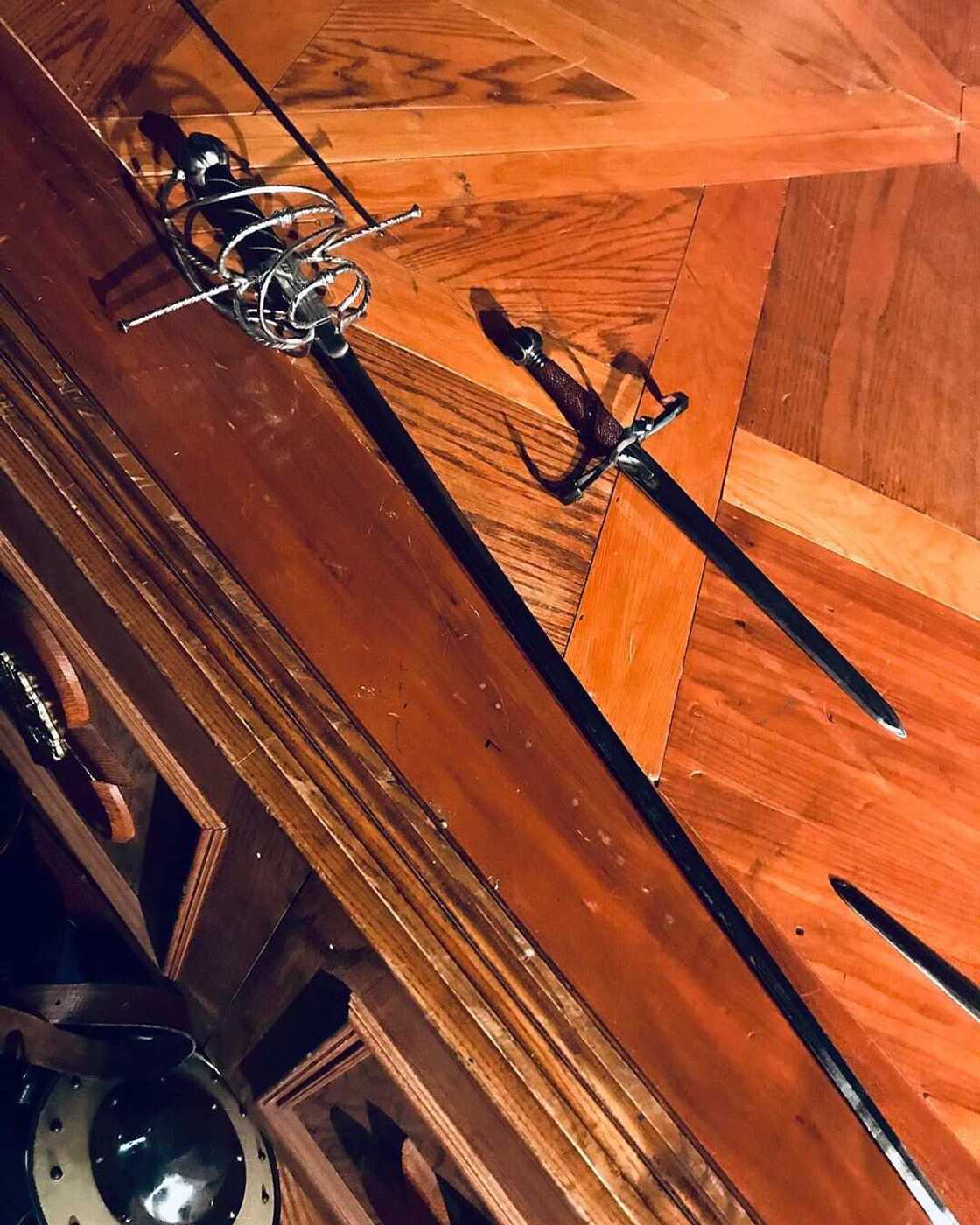
Source: Instagram
This was a slim and sharp-pointed blade. It was explicitly used in thrusting through small openings in an enemy’s armour. With only a hilt for hand protection, the rapier is sharp to the tip. Its application as one-handed blade enabled usage of other different weapons like guns in the 16th-17th century, during the Modern Europe period.
8. Scimitar curved
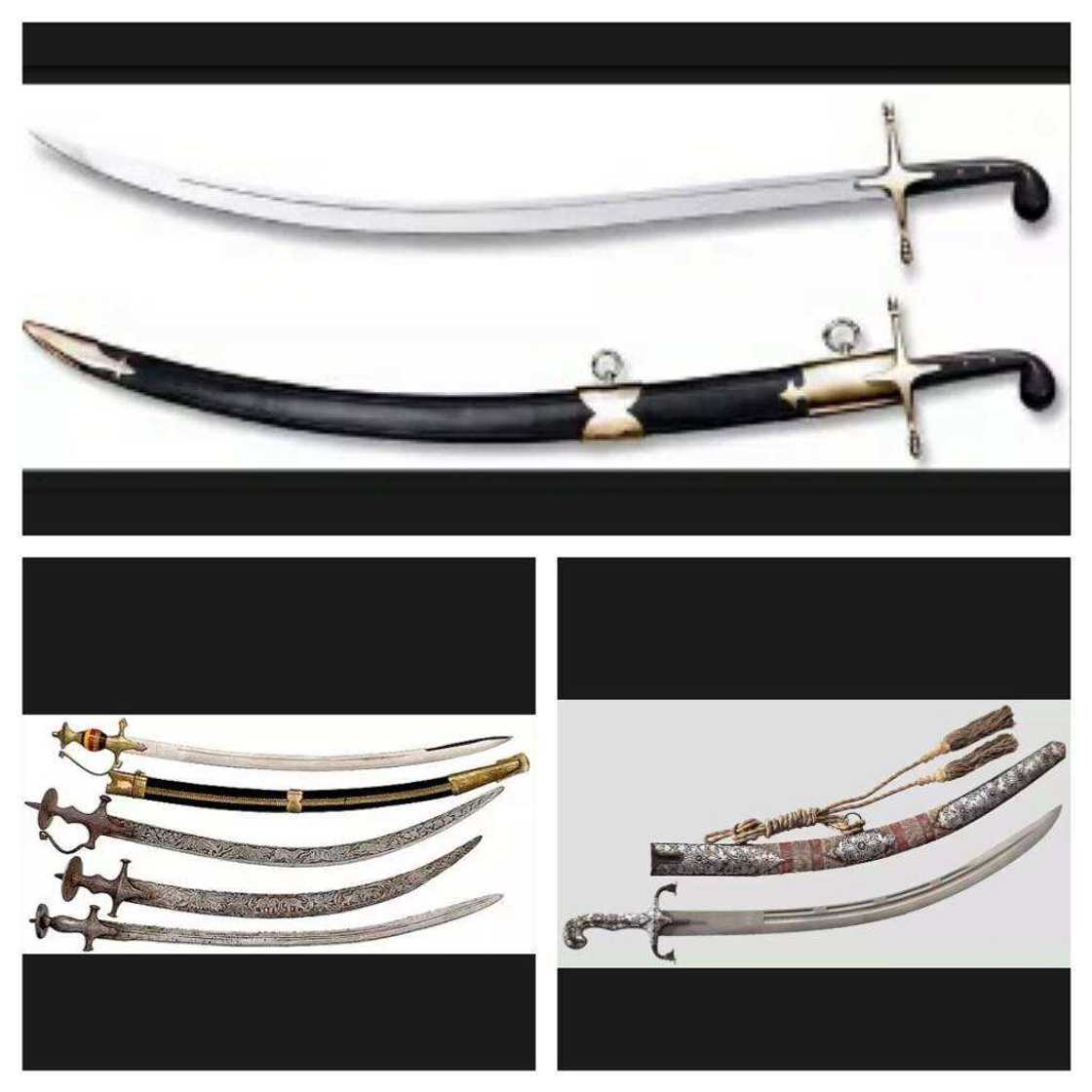
Source: Instagram
This is a backsword possessing a curved tip. Its origin is based from the Persian and Middle East during the Ottoman timeframe. (12th-16th) century.
9. Khopesh 20"-24."
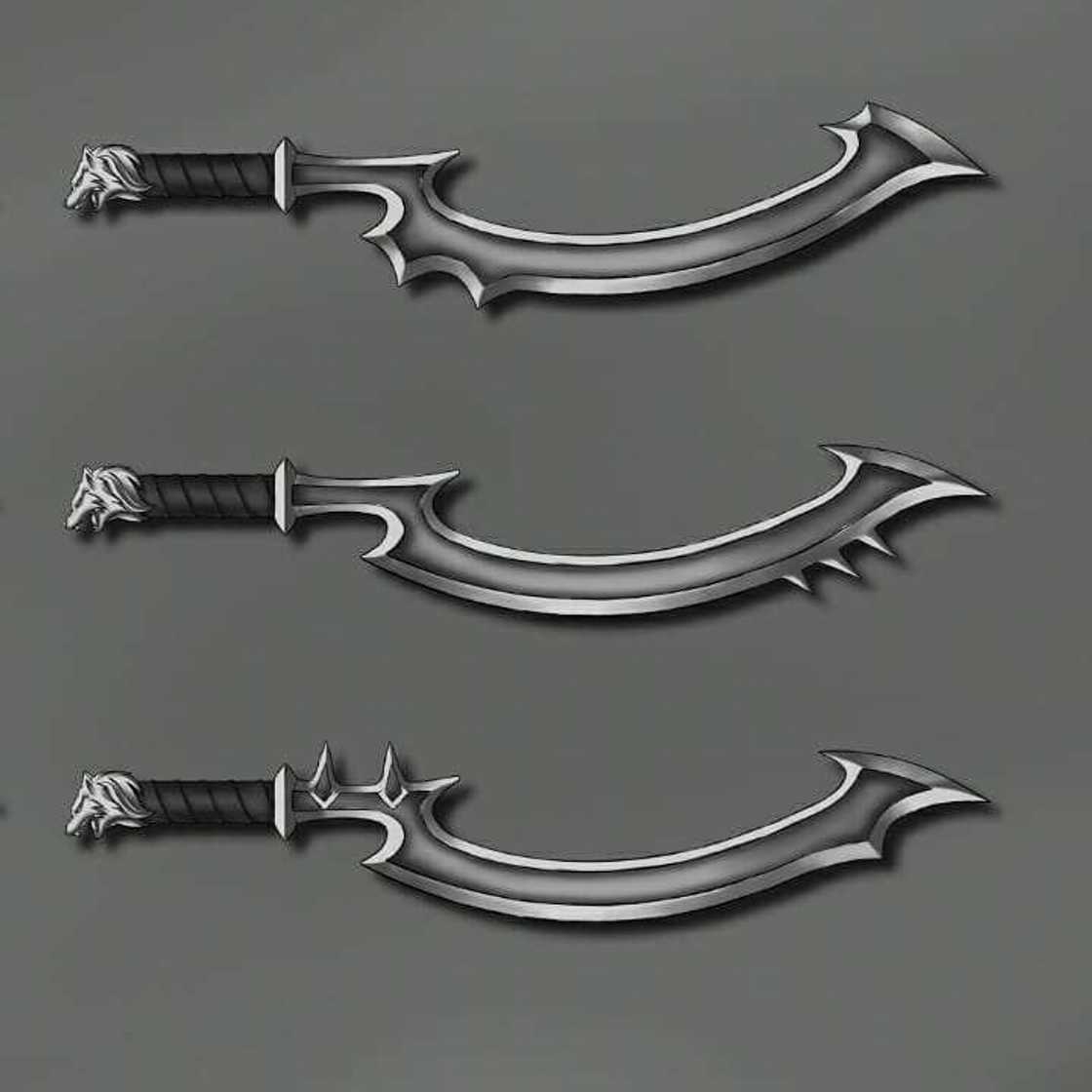
Source: Instagram
These swords types originated from Egypt during the 3,000-1,000 BC. First models were smelted from bronze and later iron material. The curved structure enabled the handler to tag and drag the opponent’s weapon hence acting as a hook.
10. Cutlass
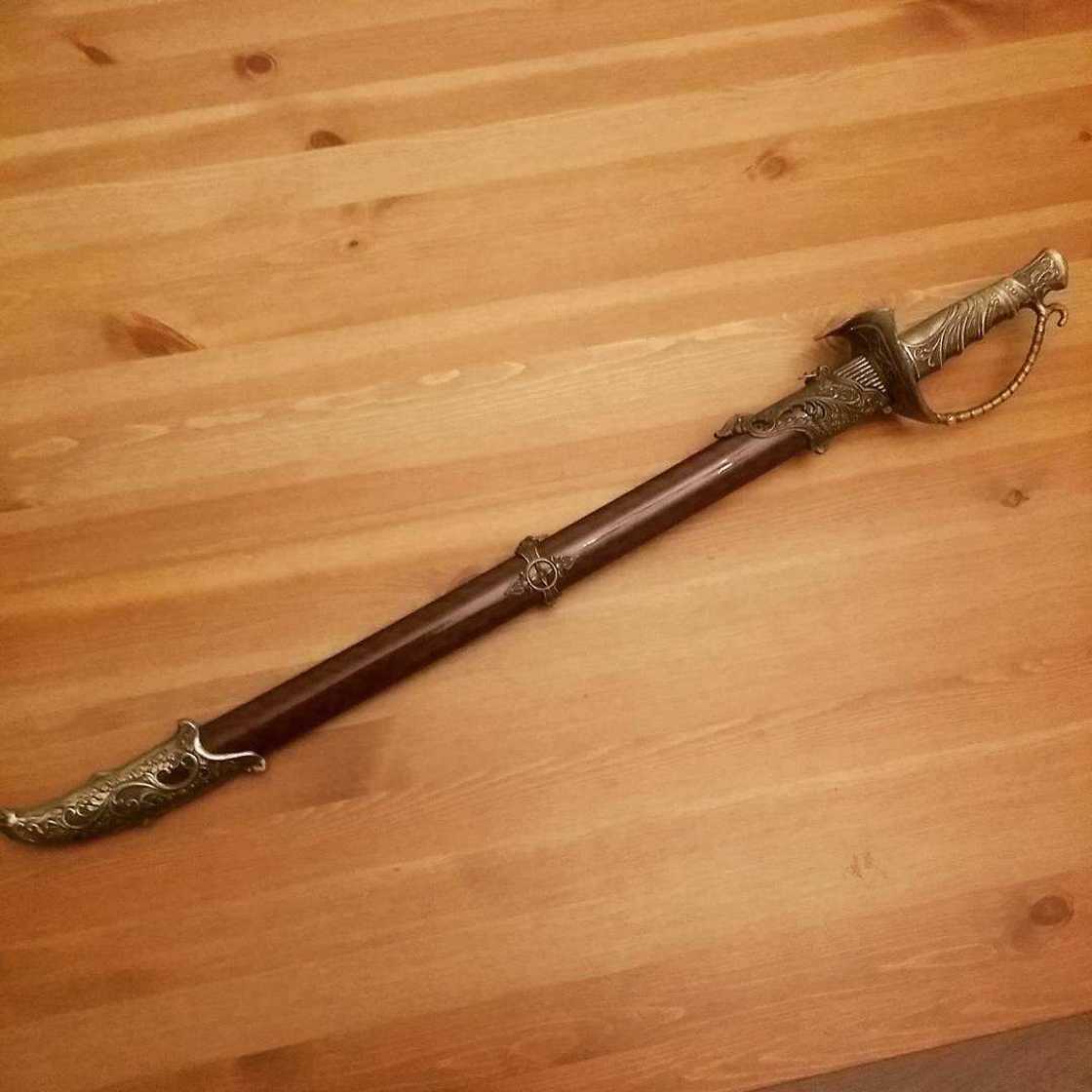
Source: Instagram
As a saber, it was quite shorter possessing a straight blade frame. Others included slightly curved blades and were widely used as a navy weapon. Cutlass is light and has a gun grip for easy withdrawal and action. Apart from the navy, some of the greatest pirates that include Blackbeard were also fond of using it. This led to its public burn as it could only be used during various government ceremonies.
11. Curtana –Sword of mercy
From the Middle Eastern region, it is 37 inches long and made of steel. Scimitar is famous as a hunting blade. It has been used in the famous movie “Prince of Persia” under the “lions and snake “swords that are owned by the prince. Their blades tend to be broad, curved, and needle-sharp tips. Scimitar was majorly used by the first Sultan of Egypt known as Saladin in fighting the Crusaders.
12. Wakizashi
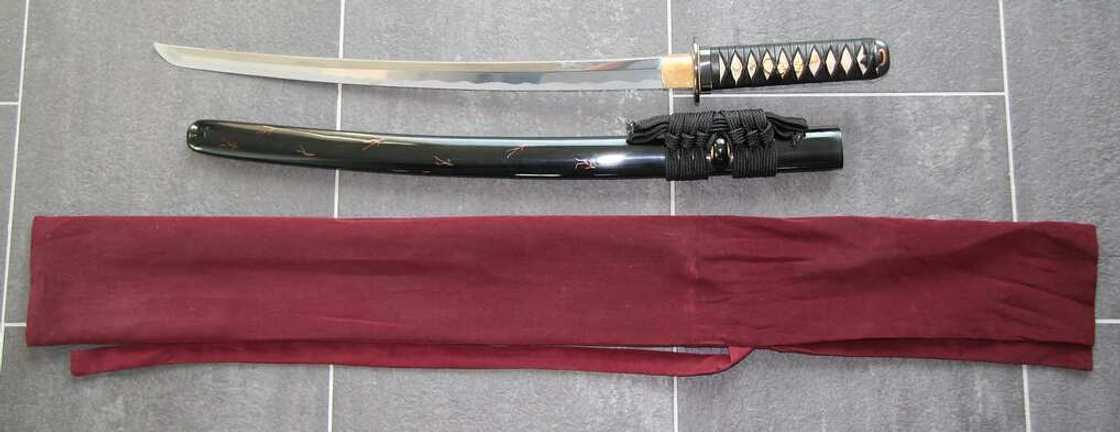
Source: UGC
Commonly referred to as the “companion sword. “It was popular among the Japanese Samurai. Its application was basically during indoor battles. A Wakizashi of 24 to 30 inches is known as O-wakizashi. Its history dates back to Miyamoto Musashi, who was a master in both katana and wakizashi combined usage.
13. Chinese Dao
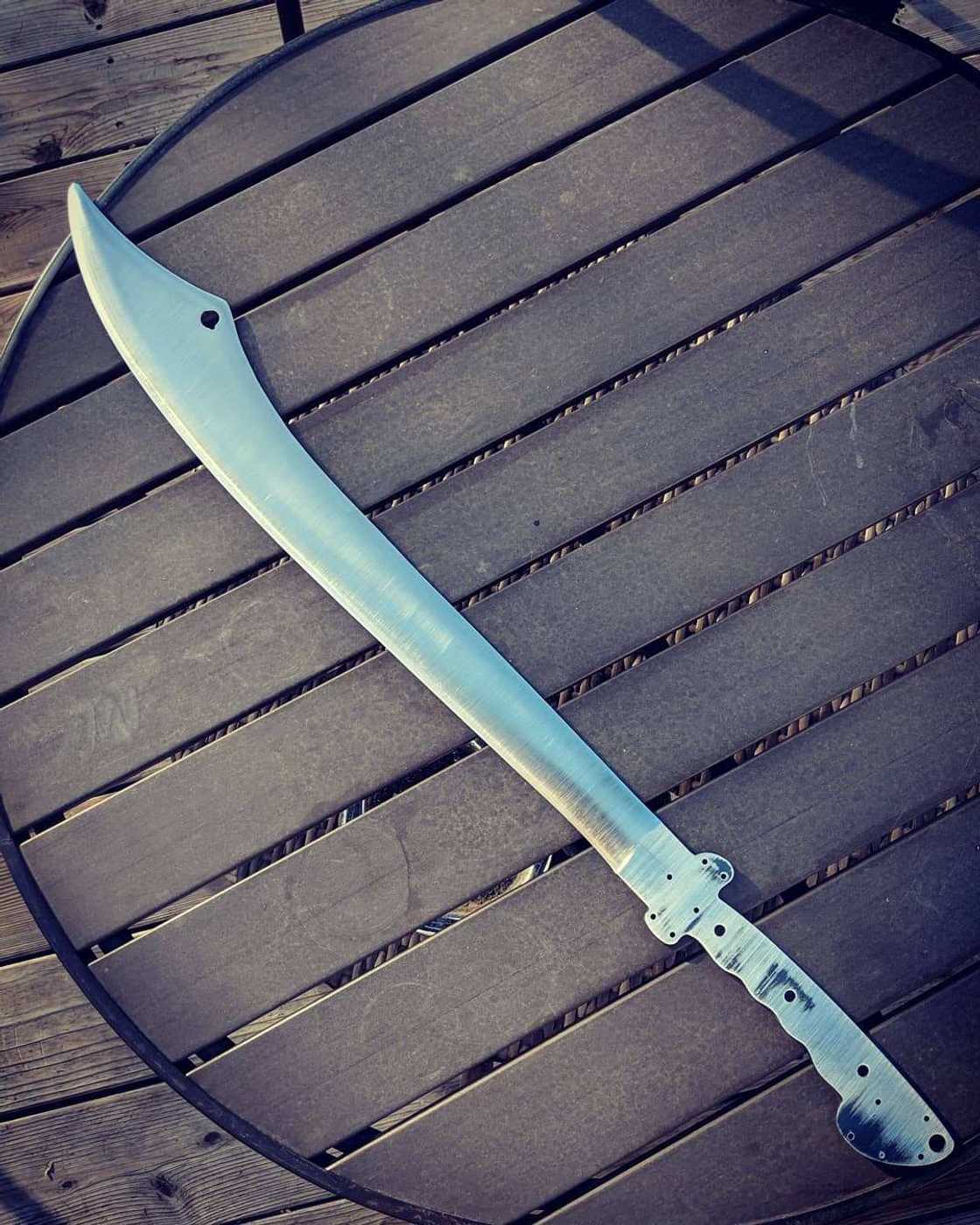
Source: Instagram
Best used to achieve critical hacking and slashing impacts on opponents. The Dao possess a single-edged blade which developed to maintain curved edges around the 11th century.
14. Ninjato
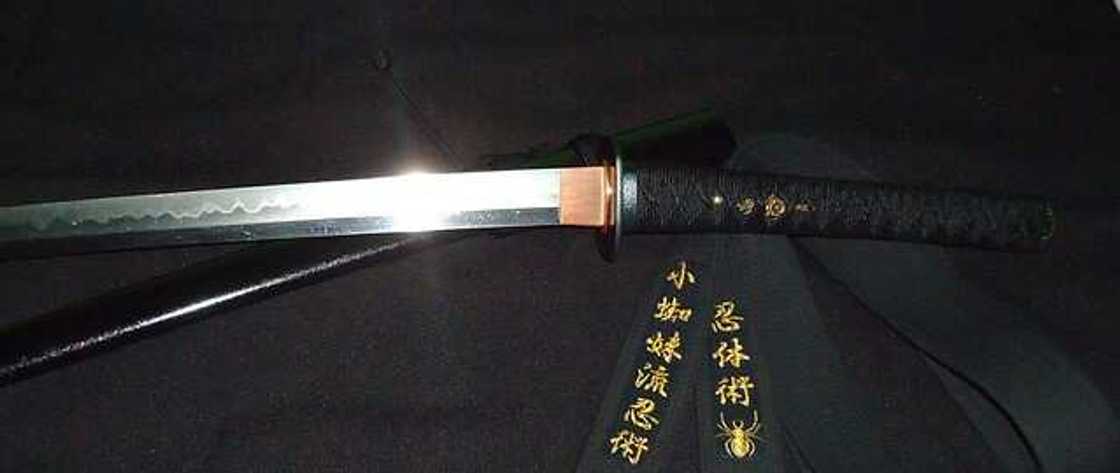
Source: UGC
From its name, it refers to the ninja blade used by Japanese warriors during the feudal Japan error. It features a single edge blade and guards that range from being round for practical double hand usage. History has it that Ninjato made some of the best type of swords in military assault weapons.
15. Falchion

Source: UGC
From its appearance, it resembled a blade with an axe edge. This made it very useful in achieving high striking power. Falchion's weight make it slower to apply when compared to the rest.
The evolution of early civilization led to the development of different types of swords from different cultures and nations. Names for swords were based on some of their distinctive traits based on the community that used it. However, the classification of swords has been done by most archaeological scientists who have studied the different swordsmanship periods. From the Bronze Age, swords are still a symbol of heritage, power, and protection. Their application is still dominant in various world cultures and even government ceremonial purposes.
Source: Legit.ng






